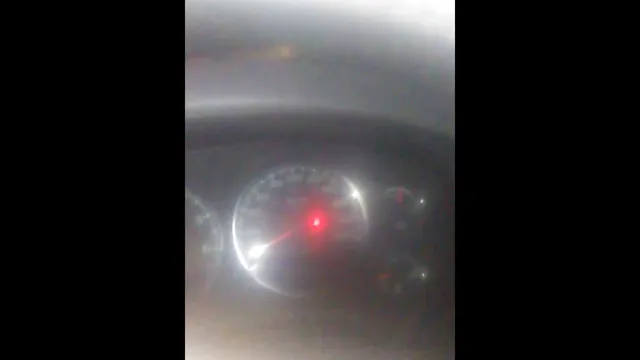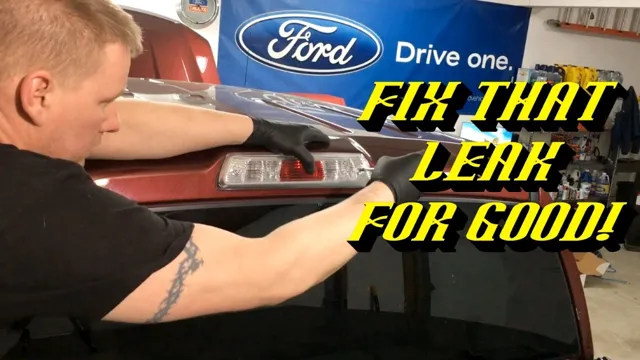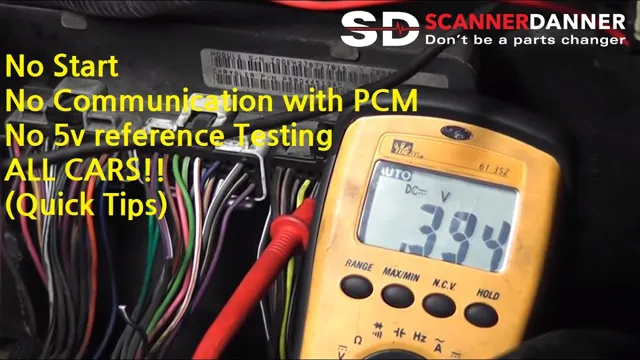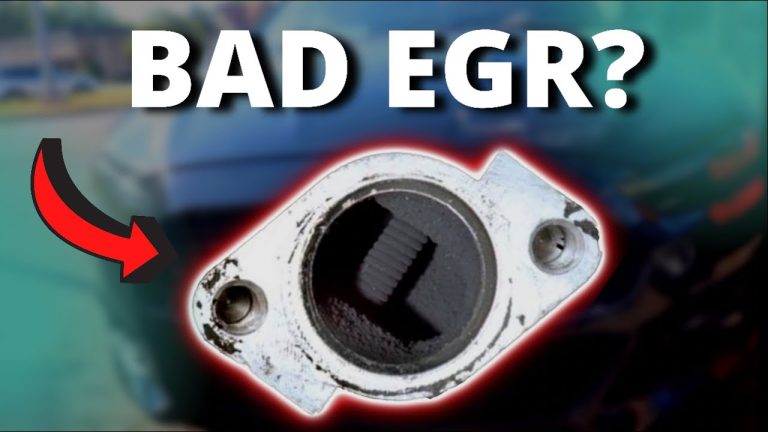Eliminate Cold Start Knock in Your Car: Expert Tips and DIY Methods
Do you hear a loud, repetitive thumping noise coming from your car’s engine during a cold start? If so, you’re experiencing what’s known as a “cold start knock,” which can be frustrating and even alarming for drivers. Fortunately, there are several tips and tricks you can use to fix this issue and get your car running smoothly again. In this blog post, we’ll take a closer look at what causes cold start knock and then explore effective ways to fix it.
So, grab a cup of coffee and settle in – let’s dive in!
Understand the Cause
If you’re experiencing cold start knock, the first step in fixing the issue is understanding its cause. Cold start knock occurs when the engine makes a knocking sound during initial startup, particularly in cold weather. This noise can be attributed to a variety of factors, including low oil pressure, worn bearings, or faulty lifters.
One possible cause of cold start knock is dirty or worn spark plugs, which don’t ignite fuel as well during the start-up process. Another factor could be fuel quality, as low-quality gasoline may not burn as cleanly as higher-quality fuel. To fix the problem, you’ll need to identify the underlying cause of the knock and take appropriate action.
This may involve replacing worn or damaged parts, changing your spark plugs, or switching to a higher-quality fuel. By understanding the cause of cold start knock, you can make the necessary repairs to ensure your engine starts smoothly and runs efficiently.
Assessing the Engine
When assessing the engine, it’s crucial to understand the cause of any issues you’re experiencing. Is the engine making a strange noise, emitting smoke, or simply not working at all? These symptoms can indicate a range of problems, from minor issues like loose belts or hoses to major problems like a blown head gasket. Before attempting any repairs, it’s important to diagnose the cause of the problem accurately.
Ignoring the symptoms or attempting to fix the wrong issue could lead to further damage and more costly repairs down the road. Ensure that you take the time to thoroughly assess the engine and identify the root cause of the issue before taking any steps to repair it. This will save you time and money in the long run.
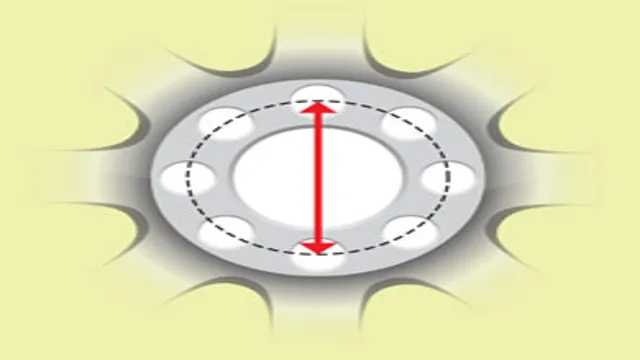
Understanding the Cold Start Knock Phenomenon
If you’re a car owner, you may have experienced a sudden knocking sound during start-up on a cold morning. This is known as the cold start knock phenomenon. But what causes this unsettling noise? Well, the sound is most commonly caused by piston slap, which occurs when the piston rocks back and forth inside the cylinder wall due to thermal expansion.
This issue is more prevalent in older or high-mileage engines where the cylinder walls have worn down over time. It’s important to note that while the sound may be concerning, it usually disappears once the engine warms up and isn’t necessarily a sign of a significant problem. However, if the knocking persists, it’s best to have your engine checked by a professional to avoid any potential damage.
Diagnosing the Issue
If your car is making a knocking sound when you start it on a cold day, there are a few things you can check to diagnose the issue. The most common cause of a cold start knock is low oil pressure, which can be caused by a variety of factors including a dirty oil filter, a damaged oil pump or a worn out engine bearing. Another possible cause is a worn out starter motor, which can cause the engine to turn over slowly and produce a knocking sound.
It’s also possible that the problem is related to the fuel system, such as a dirty fuel filter or a faulty fuel pump. To determine the cause of the cold start knock, it’s best to consult a mechanic who can perform a thorough inspection and test drive to determine the source of the noise. Once the issue has been identified, the mechanic can recommend the best course of action to fix the problem and prevent it from happening again in the future.
So, if you’re experiencing a cold start knock, don’t hesitate to take your car to a professional who can help you get back on the road safely and reliably.
Check the Oil Level & Condition
When your engine starts to show signs of problems, it’s essential to diagnose the issue quickly before the problem gets worse. One of the first things you should check is the oil level and condition. Low oil levels or dirty oil can cause severe engine problems, leading to costly repairs down the line.
Checking the oil levels and condition is simple, so don’t wait until your engine is already showing serious symptoms. Start by checking your owner’s manual for the proper way to check the oil level, then use the dipstick to check the oil level. If the oil is low, add more to bring it up to the appropriate level.
But, if the oil is dirty or has metal particles in it, this could indicate a more serious problem, and you should take your vehicle to a mechanic right away. Remember, your car’s engine oil is the lifeblood of your vehicle, and regular maintenance can help prevent costly repairs in the future. So, make sure to check your oil regularly and change it as recommended by your manufacturer.
Inspect the Ignition timing
Inspecting the ignition timing is an essential step in diagnosing potential issues with your vehicle. Ignition timing refers to the precise moment when the spark plugs ignite the fuel and air mixture in the engine. Checking the timing involves ensuring that this ignition occurs at the correct time in relation to the movement of the pistons in the engine.
If the timing is off, it can cause a variety of problems, such as reduced power output, poor fuel efficiency, and even engine damage. To diagnose any issues with the ignition timing, you first need to locate the timing marks on your engine’s crankshaft pulley and the timing cover. Once found, you can use a timing light to detect any deviations from the manufacturer’s recommended settings.
By inspecting the ignition timing, you can ensure that your engine is operating at optimal performance levels and avoid costly repairs in the future.
Check the Fuel Quality
When trying to diagnose engine problems, one essential thing to check is the fuel quality. Poor fuel quality can result in clogged injectors, valve deposits, and lower engine performance. One way to determine fuel quality is to check the fuel filter for particles and contaminants.
Another way is to examine the color and smell of the fuel. Fresh fuel should be clear and odorless, while stale or contaminated fuel may have a sour odor or a darker color. It’s also important to know the fuel octane rating and ensure that it matches the manufacturer’s recommendations for your vehicle.
Poor fuel quality can be detrimental to your engine, so always make sure to use high-quality fuel from reputable sources and monitor it regularly. Ultimately, taking care of your fuel quality is a sure way to maintain your car’s engine health and prolong its lifespan.
Fixing the Issue
If you’re experiencing cold start knock, don’t fret – it’s a common issue that can often be fixed quickly and easily. The first step is to determine the cause of the knock, which can be caused by a few different factors. One possible cause is low-quality gasoline, which can cause knocking due to inconsistent combustion.
Another common cause is worn out engine parts, typically the bearings and connecting rods. This type of knock is more noticeable when the engine is cold, as metal expands and contracts at different rates. To fix the issue, start by using high-quality gasoline and staying on top of regular oil changes.
If the issue persists, consider getting a professional inspection to identify any worn engine parts that may need to be replaced. By taking these steps, you can silence that annoying cold start knock and keep your engine running smoothly for years to come.
Replace Worn-out Engine Parts
If you’re experiencing reduced engine performance or strange noises under the hood, it’s time to consider replacing worn-out engine parts. This common issue can be caused by a variety of factors, such as age, wear and tear, or improper maintenance. While it may be tempting to ignore the issue and hope it goes away, a faulty engine component can lead to costly repairs and even safety hazards.
The good news is that fixing the issue doesn’t have to be a complicated or stressful process. By identifying the problematic part and replacing it with a high-quality replacement, you can restore your engine’s performance and extend its lifespan. Whether it’s a worn-out spark plug or a malfunctioning fuel injector, investing in the proper maintenance of your engine will pay off in the long run, ensuring a smooth and reliable driving experience.
So, be proactive and address any engine issues as soon as they arise, and you’ll enjoy worry-free driving for years to come.
Clean the Fuel System
If your car is experiencing issues like rough idle, decreased fuel efficiency, or stalling, it could be due to a dirty fuel system. Over time, dirt, debris, and other contaminants can build up in your fuel system, blocking fuel lines and injectors and causing a range of frustrating symptoms. To fix the issue, you’ll need to clean your fuel system.
There are a few different methods for doing this, ranging from adding fuel system cleaners to your fuel tank to manually cleaning your injectors with specialized equipment. However, it’s important to remember that prevention is the best cure. Regular maintenance like changing your fuel filter and using high-quality fuel can help prevent a dirty fuel system from causing problems in the first place.
By taking care of your car’s fuel system, you can enjoy better performance and avoid costly repairs down the road.
Conclusion
In conclusion, fixing a cold start knock requires a keen ear, a little bit of patience, and a willingness to get your hands dirty. Whether it’s a simple solution like changing your oil or a more complex issue like worn engine bearings, taking the time to properly diagnose and address the problem is crucial. So, next time you hear that telltale knocking sound, don’t panic – just show your engine a little TLC and get back on the road with confidence!”
FAQs
What causes cold start knock?
Cold start knock can be caused by a number of factors, including low oil pressure, worn engine bearings, or dirty fuel injectors.
How can I diagnose cold start knock?
You can diagnose cold start knock by listening for a knocking sound when you start your engine in cold weather. You can also check your oil pressure and inspect your engine bearings for wear.
Can cold start knock damage my engine?
Yes, if left untreated, cold start knock can cause significant damage to your engine over time. It’s important to address the underlying issue as soon as possible.
How can I fix cold start knock?
The best way to fix cold start knock depends on the underlying cause. Some potential solutions include changing your oil, replacing worn engine bearings, or cleaning your fuel injectors. It’s best to consult a mechanic for an accurate diagnosis and repair plan.

